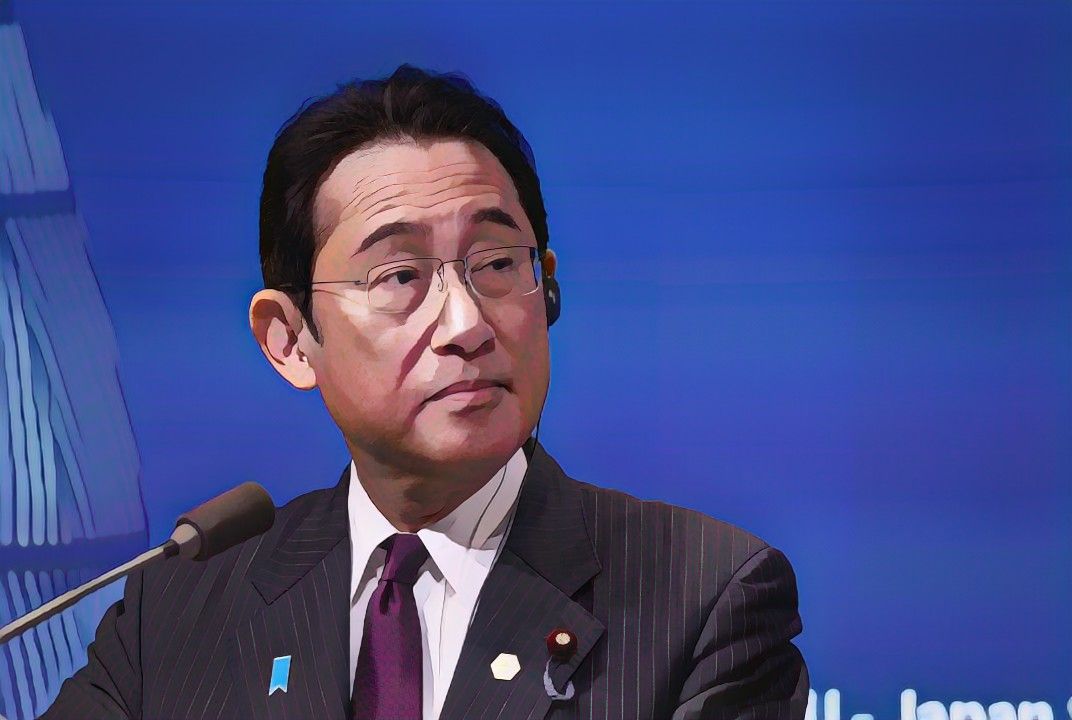NATO Makes Deal With Japan But No Liason Office

The Lede: Japan and NATO have completed a deal to elevate cooperation across several security areas in response to elevated tensions with Russia and China
What We Know:
- The deal called the Individually Tailored Partnership Program (ITPP) was completed at this week’s NATO leaders’ summit in Vilnius, Lithuania. Beyond traditional security areas, collaboration between Japan and NATO will extend to cyber, emerging and disruptive technologies, and strategic communications. It runs along three strategic objectives for the 2023-2026 period including strengthening dialogue and consultation, enhancing resilience, and boosting interoperability.
- At the same time, NATO has seemingly shelved its plans to open a liason office in Tokyo. There was no mention of moving forward with such plans at this latest summit. NATO Secretary General Jens Stoltenberg insisted that the liaison office remains on the table, but French President Emmanuel Macron actively opposed it.
- China voiced disapproval this week for distortions in its position and deliberately trying to discredit the country. The Chinese mission to the European Union condemned any increase in NATO’s influence in the Asia-Pacific and vowed a ‘resolute response’ to the jeopardization of Beijing’s legitimate rights and interests.
The Background: This is the second year that Japan, Australia, New Zealand, and South Korea have attended the NATO summit. The NATO summit in Vilnius builds upon the strategic concept formed at the alliance’s Madrid summit last year. It identifies the systemeic competition with China as it undermines the ‘rules-based international order.’ France has been vocally opposed to plans for a NATO liaison office in Tokyo due to concerns of provoking China. While the member states do not all agree on a single policy toward Beijing, NATO has identified the possibility of conflict between China and Taiwan as an area of concern for the alliance, but acknowleges that it is outside of its territorial mandate. The U.S. has been pushing for its European allies to take a harder stance on China as the rivalry between the two superpowers has grown.
Likely Outcomes:
- Closer cooperation with NATO will likely mean sweeping upgrades to Japan’s military to adhere to the alliance’s standards in terms of doctrines and procedures as well as enhancements to personnel exchanges. It may lead to adjustments to weapons and equipment in the Japanese military as well as interoperability of Japanese-made equipment among NATO member countries.
- Other countries in the greater Indo-Pacific region that already work closely with NATO such as South Korea, Australia, and New Zealand may seek cooperation under an ITPP in the future. The formation of an ITPP bloc in Asia would be the next step in the eastward expansion of NATO influence.
- China may respond with policies that put pressure on NATO’s European member states to signal disapproval for the alliance-building occurring in the Indo-Pacific region. It may also be further incentivized to push for a negotiated end to the Russian War in Ukraine as a mediator. This could give China some influence over the critical European security situation and some clout in a matter that NATO is largely involved in.
Quotables:
“Japan and NATO share the understanding that unilateral attempts to change the status quo by force or coercion will not be tolerated, regardless of where they occur in the world.” – Fumio Kishida, prime minister of Japan
“This is a crucially important development in that for the first time there is a practical, in-depth pathway exploring where and how the security of the Euro-Atlantic and the Indo-Pacific intersect. This new focus signals not only a deepening relationship but also that the age of regionalism and globalization is giving way to the age of the Atlantic-Pacific partnership.” – Alessio Patalano, East Asia security expert and professor at the Department of War Studies at King’s College London
"Whatever people say, geography is stubborn. The Indo-Pacific is not the North Atlantic, so we must not give the impression that NATO is somehow building legitimacy and a geographically established presence in other areas." – Emmanuel Macron, president of France
“NATO must promptly withdraw the black hand it has extended toward the Asia-Pacific region, and it should not even think about squeezing half of its body in the future. Apart from certain countries like Japan, which act out of dark selfish motives rather than considering the overall interests of Asia, the majority of countries in Asia not only do not welcome NATO but also see it as a terrible monster that should be avoided at all costs. This is because NATO only brings security risks, war threats, and development predicament to Asia.” – Editorial at the Global Times
Good Reads:
Japan and NATO usher in new era of cooperation amid China concerns (Japan Times)
Nato appears to shelve plans to open Japan liaison office in Tokyo (The Guardian)
Macron Rejects NATO Office In Japan (Barron’s)
China promises ‘resolute response’ to any NATO expansion in Asia (Al Jazeera)
Two stern warnings must be given to the arrogant NATO: Global Times editorial (Global Times)
